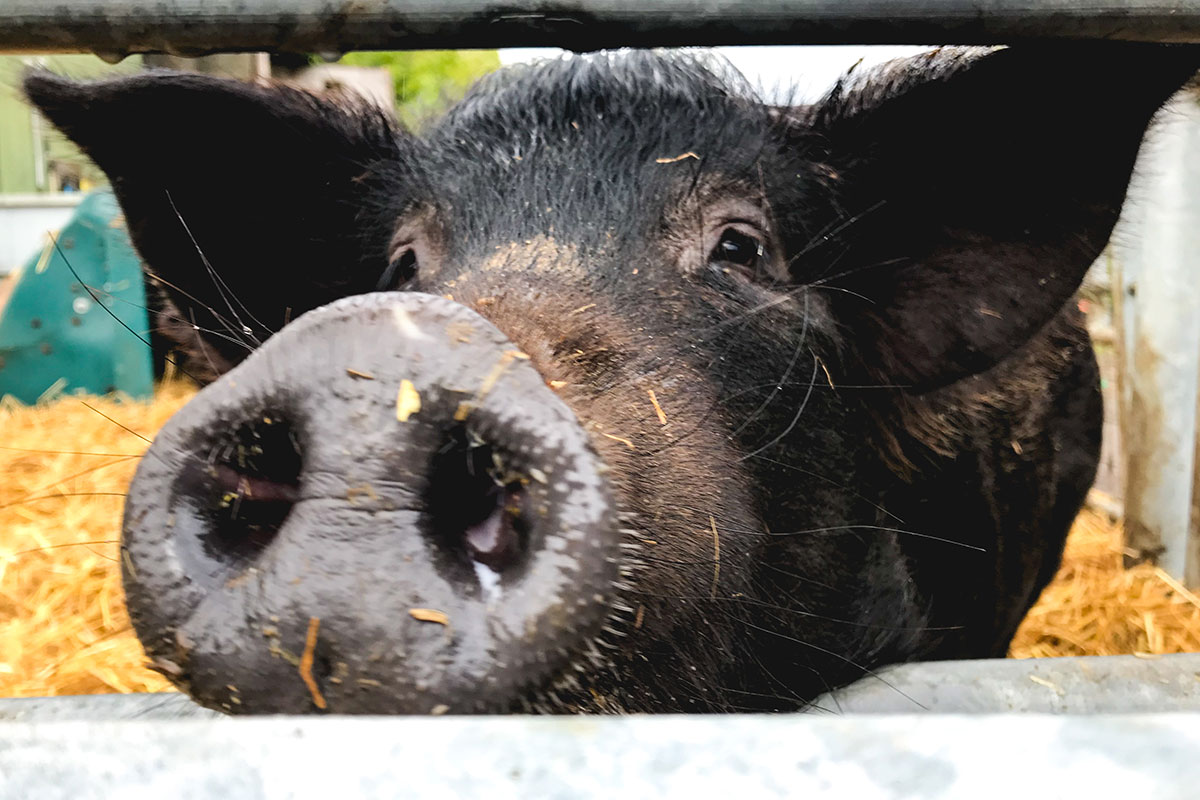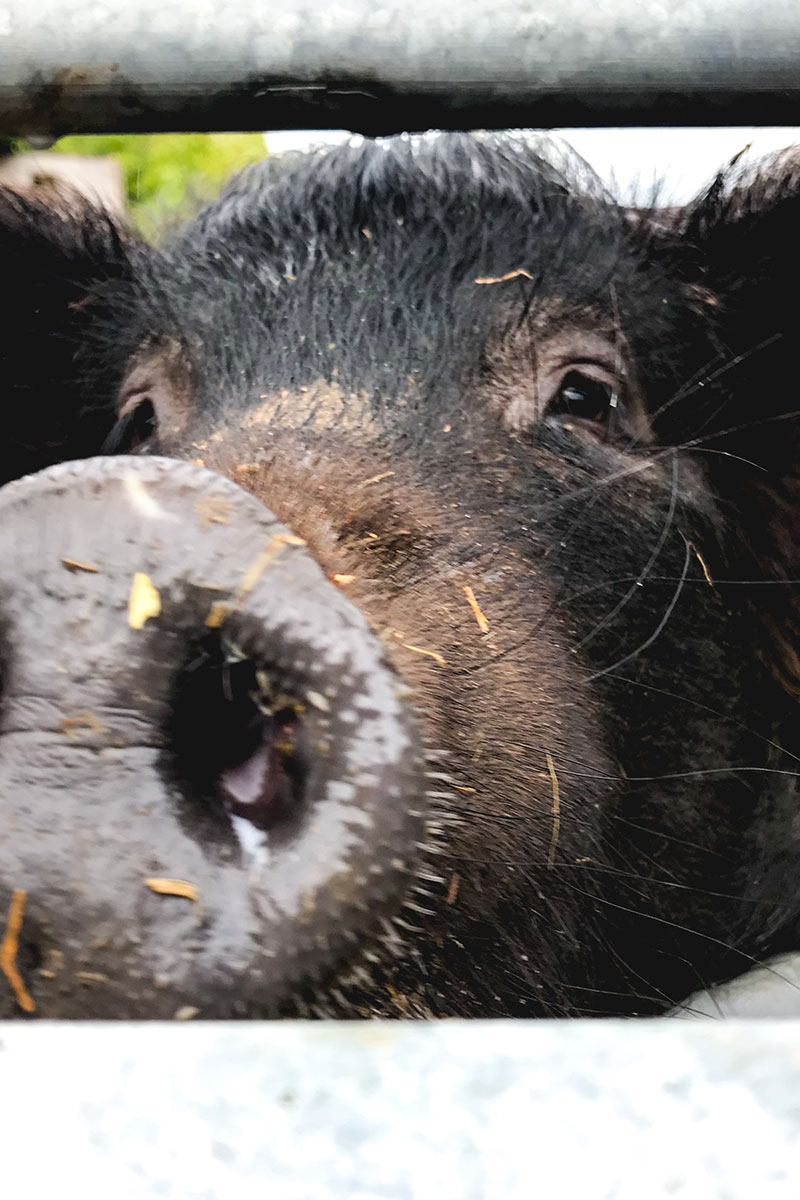Continued from Part 1: ‘Spiking Vegetarians’
Have you ever been asked what your ‘death row’ meal would be? If you were to be strapped into old sparky tomorrow, what would be your choice of dinner tonight? At this point I’d like to introduce the hero, or perhaps villain, of the story, and my death row meal — Steak tartare.

Raw meat and fish are manna from heaven, some of my favourite foods are eaten raw, such as oysters, sashimi and steak tartare. Consuming flesh raw puts heightened demands on the quality and freshness of the meat and increases the personal connection with the source of the food, it feels a more visceral, primal form of consumption when no heat has been involved.
Steak tartare is an opulent dish, eaten perhaps once a year, on the rare occasion that I find myself in a restaurant that serves it. It stands as my favourite dish in the world, because it’s simple, exquisite and ultimately unsatisfying, a small portion served in a little mound with a glossy, bulbous yolk perched atop. It’s impossible to eat too much because the portions are small and it’s a rich, intense meal; the quality of the food defies over-consumption.
Whereas ice cream, pizza and hamburgers provide compulsive eating, resulting in a corpulent, greasy persona begging for mercy, unable to look a “waffer theen meeent” in the eye like Mr Creosote from Monty Python, a single portion of steak tartare is never enough, I always want more.
Steak tartare is also the reason I didn’t go ‘full veggie’.
The incidental nature of my quasi-vegetarianism meant that eating less meat was not a conscious choice, it was the path of least resistance. It’s said there’s two types of vegetarian, people choose a meat-free diet for either moral reasons or health reasons, however this misses out a significant third position, convenience.
On a domestic level, being vegetarian is much easier than eating meat.
Eating meat or fish on a daily basis whilst co-habiting with an active vegetarian requires more shopping, meal planning and cooking, activities that I attempt to minimise Monday to Friday. They’re highly enjoyable leisure activities, but not as daily prerequisites crammed into the structure of a busy week.
Accidental vegetarianism meant there was no ethical or moral foundation for my reduced meat consumption. PETA hadn’t radicalised me, nor had I taken leave of my leather shoes and made efforts to eradicate animal products from other areas of my life.
Quite simply, I was eating less meat. I hadn’t given any time to considering whether eating meat is ethically sound or morally reprehensible, but once the Pandora’s box of these questions opened, the lid refused to close again. Before long, I became obsessed with the ethics of eating meat.
Bernard was my dog and he was a kindly dog. If he and a doggy pal were given tasty chews to sink their teeth into, he would delicately negotiate his own and should the other pup finish their chew with ferocious speed, Bernard would let them eat his. He did this without resentment or anger, because he was a gentle, patient pooch with an amiable demeanour. When he wanted to say hello, or more likely, play, he would walk over and nudge my leg with his nose, a forceful double tap with the soft point of his head, which nonetheless made his intention clear.
The question of whether it is ethical to eat meat often came back to Bernard. Would I eat Bernard? Well, yes, I would, it’s the only congruent answer. Bernard was a dog, an animal comprised of meat and I eat meat.
Over the years I’ve eaten many different meats and to discriminate based on species would be illogical.
Disgust at the consumption of meat such as dog or horse comes from our cultural structures or emotional attachments to these animals from the society we live in, which is somewhat irrational. It’s possible to become emotionally attached to chickens and cows, yet we eat those with gleeful abandon. Why is horsemeat less acceptable than pork? After all, it’s all meat.
Before the RSPCA hotline goes beserk about eating my dog (I haven’t), the important clarification is that harm and pain are where my ‘beef’ around meat resides. Whilst I would logically eat Bernard, I simultaneoulsy have no desire for him to die, because he was my pet dog, not bred for meat, nor would I ever wish for him to experience pain. Although death and pain are both inevitabilities in life, I do not want to be the agent of those experiences in Bernard’s life, or bring them unnecessarily upon him.
Hence, I have not eaten Bernard, he’s still very alive and running around. Yet, I have eaten pork, chicken, duck, rabbit, lamb, venison, pheasant, pigeon and beef, so I see little reason why I should decline dog, cat or horse, if they were offered to me.
Herein lies the contradiction at the heart of eating meat. All of these animals were living, sentient creatures with some form of consiousness who can experience pain. It’s likely that farm animals were born and bred specifically to provide meat, however, on a basic level, Bernard is the same as these farmed animals, so the avoidance of pain or death for him is incongruent with my aiding and abetting the death of other animals for my dinner. This logic suggests that I should treat all animals the same.
If I don’t want Bernard to die, then moral congruence would mean wishing the same for all other animals.
This idea becomes a lot more shaky when considered in a historic light, looking at the development of mankind as hunter gatherers, which seems to be framed by two key facts. Firstly, if we go back far enough, humans did not eat meat. However, as soon as we learned how to, the enhanced nutrition provided by this protein-packed tissue helped the evolution of the human race skyrocket and it’s been an element of our existence ever since.
Whether it is morally corrupt, or developmentally natural to be an agent of death proved to be the sticking point in my conundrum over whether to eat meat. It seemed the only path to reconcile this dissonance, beyond intellectualising it, was to experience the entire process of slaughtering and killing an animal.
You may wonder why I need to personally kill an animal to decide whether it’s OK or not? Well, how do you know if you like Brussels sprouts?
How can we understand what is personally acceptable in life, within the confines of the law, unless we experience it, first hand?
Killing a single animal does not commit me to a life of animal slaughter and carnivorous bloodlust. Kissing someone of the same sex would not make me gay, and supporting a football team would not make me a hooligan. Human beings love pigeon holes and sometimes we protest about certain practices, assuming them to be absolutes, without recognising the inherent nuance and individual experiences occuring within. How can we understand the feelings involved in a practice without having first-hand experience of the process?Saying “I don’t need to try, I just know that I wouldn’t like it”, could be considered a blinkered, narrow-minded view.
You could argue that killing is inherently wrong and there’s no need to experience slaughter to support that fact. However, looking at the natural world around us, it seems that killing animals as food is one of the most basic, primal instincts that every carnivorous creature on the planet shares. There’s little evidence that killing other creatures is unnatural, it occurs in natural abundance, every single day.
On this basis, I arranged to slaughter some small animals by my own hand, such as chicken, ducks and rabbits, however, the two seperate farmers who agreed to facilitate this also independently cancelled or ghosted me. Killing animals for our food should not to be taken lightly, which seems to be the first important lesson here.
However, opportunities in life are abundant and before long, another option appeared, the chance to meet, then butcher an entire pig.
The big question was, what would we call her?
Continued in Part 3: ‘Meeting Theresa and when Animals Die’

